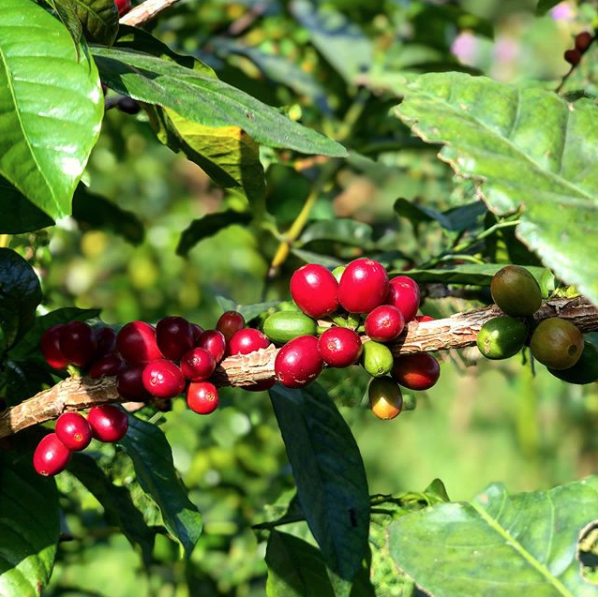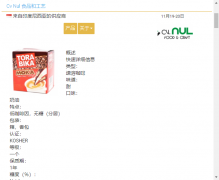Indonesian Coffee Industry Export and production of Indonesian Coffee beans Robusta makes instant coffee
Indonesia is the world's third largest coffee producer and exporter after Brazil and Vietnam. Indonesian companies offer a full range of quality coffee, from the ordinary Robusta variety to the outstanding Arabica coffee and the famous kopi luwak Indonesian Kopi Luwak. Over the past few decades, national coffee production has increased, although not linearly, as the harvest fluctuates widely from year to year, depending on the weather. With the increase in per capita coffee consumption in Indonesia and the wider region, there is room for further growth, but there is also a significant investment demand. The capital needed to take Indonesia's coffee industry to a new level offers attractive prospects for investors, while the country's booming coffee culture offers opportunities for foreign exporters.
The tropical climate of Indonesia creates almost ideal conditions for growing coffee. Cultivation dates back to colonial times and began in western Java, but the plantation quickly expanded to eastern Java and all parts of the country. Today, most Indonesian coffee comes from Sumatra, but Sulawesi and Kalimantan, the Little Sunda Islands, Sumbawa and Flores in Bali, and the easternmost region of Papua all contribute to national production. Robusta coffee accounts for more than 3/4 of Indonesian products; the rest is the milder type of Arabica coffee. Many coffee growing areas in the country produce coffee beans with unique flavor and characteristics, and some plateau Arabica coffee from Indonesia is recognized by coffee lovers all over the world. In fact, there are many different varieties of Mandarin coffee in Indonesia, such as Golden Manning, Lin Dong Manning, Tiger Manning and so on.

Export-oriented industry
Coffee has been the first export commodity since the Dutch East India Company shipped goods from Batavia (Jakarta) to Europe in the early 18th century. Indonesian growers compete with exporters in tropical Africa and Latin America for global market share, making the company vulnerable to world price and currency fluctuations. Most of Indonesian coffee is shipped abroad, especially in bumper years when production far exceeds domestic demand.
According to data compiled by the International Coffee Organization, Indonesian coffee exports increased from 336840 tons (or 5614000 bags of 60 kg bags) in 2000 / 2001 to 656400 tons (10940000 bags) in 2012 / 2013. During the same period, the total output increased from 419220 tons to 763800 tons. At present, the main destinations for Indonesian coffee are the United States, Japan and Western Europe (especially Germany), but Indonesia is able to take advantage of the fast-growing demand in the ASEAN region and China.
Growing domestic demand

Instant coffee is very popular in Indonesia, and new three-in-one brands enter the market frequently. Instant coffee is also sold in thousands of low-end cafes and corner shops, while higher-income consumers have a preference for coffee shops. As a result, foreign and local franchises are spreading across the country. Starbucks alone has announced plans to open about 100 new stores in the country within three years. With increased awareness of health and nutrition, the market sees great potential for coffee products that provide additional health benefits, such as coffee with ginseng or low-sour coffee that is milder to the stomach. Indonesians are also becoming more cautious about their generally high sugar intake.
Farmers must improve their level.
However, it is recommended that manufacturers retain this inherited production method to strengthen their marketing.
Investment prospect
To strengthen the current growth momentum, Indonesian coffee growers need to revitalize aging plantations with new trees. Processing companies must upgrade their facilities, and exporters must strengthen their marketing and packaging. The substantial capital investment required for these measures has opened up opportunities for global coffee producers and support companies to enter the market.
Important Notice :
前街咖啡 FrontStreet Coffee has moved to new addredd:
FrontStreet Coffee Address: 315,Donghua East Road,GuangZhou
Tel:020 38364473
- Prev

What about the production date and shelf life of Indonesian coffee beans? How long will the coffee beans last?
There are friends who have bought Indonesian Manning coffee but do not understand the production date and expiration date of the coffee. Let's come to Qianjie today to answer your questions. In Indonesia, processed food refers to food or beverage processed in a certain way or method, with or without additives. The label of processed food refers to any picture, text or a combination of both.
- Next

Indonesian Aceh Coffee Story characteristics of Geographic Environment and Flavor of Indonesian Coffee beans
Aceh coffee is simple, spicy and usually full of cocoa, nuts and licorice roots. It's the classic taste of Manning Coffee. In our daily quality cup test, we notice how these coffees touch completely different sensory ranges. When we write down the delightfully thick body of these coffees, the spices and herbs spread out in layers. For example, Blue Mountain Coffee is the most direct.
Related
- Detailed explanation of Jadeite planting Land in Panamanian Jadeite Manor introduction to the grading system of Jadeite competitive bidding, Red bid, Green bid and Rose Summer
- Story of Coffee planting in Brenka region of Costa Rica Stonehenge Manor anaerobic heavy honey treatment of flavor mouth
- What's on the barrel of Blue Mountain Coffee beans?
- Can American coffee also pull flowers? How to use hot American style to pull out a good-looking pattern?
- Can you make a cold extract with coffee beans? What is the right proportion for cold-extracted coffee formula?
- Indonesian PWN Gold Mandrine Coffee Origin Features Flavor How to Chong? Mandolin coffee is American.
- A brief introduction to the flavor characteristics of Brazilian yellow bourbon coffee beans
- What is the effect of different water quality on the flavor of cold-extracted coffee? What kind of water is best for brewing coffee?
- Why do you think of Rose Summer whenever you mention Panamanian coffee?
- Introduction to the characteristics of authentic blue mountain coffee bean producing areas? What is the CIB Coffee Authority in Jamaica?

